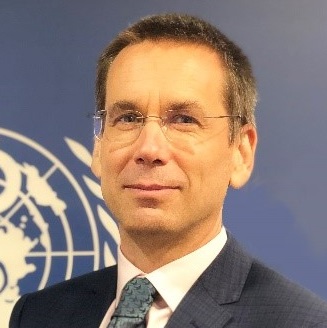SE005
Webinar 2: Occupational risk protection of health care workers, Episode 2: Impact of COVID-19 on health care workers, which includes stressful work environment, violence against health care workers (if any), social stigma and government’s psychosocial support, and health care workers’ resilience
18
Sep
ORGANIZER
- The Asia Pacific Action Alliance on Human Resources for Health (AAAH)
- WHO Western Pacific Region
- WHO Eastern Mediterranean Region
Webinar 2: Occupational risk protection of health care workers
Episode 2: Impact of COVID-19 on health care workers, which includes stressful work environment, violence against health care workers (if any), social stigma and government’s psychosocial support, and health care workers’ resilience
The unprecedented magnitude of the pandemic could lead to a long-term global upsurge in mental health problems. Health workers, who are at the center of the fight against the virus, are particularly at risk of negative mental health impact, for several reasons being (not exhaustive):
- Emotional stress and physical burnout from the increasing health care demand and intense schedules
- Anxiety over workplace exposure (e.g., shortage of PPEs, breach of IPC requirements, etc)
- Concerns over infecting family members (which may lead to lengthy isolation when return from work) Being confronted with great suffering and high mortality rates and making difficult clinical decisions given limited options available
- Facing the risk of stigma and violence against health workers which are amplified by fear and misinformation
Exposure to excessive stress, for prolonged periods can have harmful consequences on the emotional and mental well-being of frontline workers, which may eventually cause compromised capacity of the health system and emergency response. In this regard, ensuring the mental health of health workers is critical in sustaining COVID-19 preparedness, response, and resilience. Supervisors, leads, or managers also have a responsibility to protect the mental health of staff through reasonable work arrangements, encouraging appropriate help-seeking behavior, and establishing referral to services where available.
We have seen government across the world taking measures to protect and/or promote the psychosocial well-being and resilience of health works, including providing mental health services, providing additional financial and non-financial incentives to frontline health workforce, putting in place policies to ensure occupational health and safe at workplaces and protection against physical attacks, discrimination and stigmatization towards health workers. Yet challenges still exist and valuable lessons have been identified at operational level. This webinar presents an opportunity to recognize the mental health issues faced by health workers across the three regions, share good practices on lessons learnt, and discuss policy options and actions required to further ensure the mental health and resilience of health workers during the time of COVID-19.
Every crisis also presents opportunities. In the aftermath of the COVID-19 pandemic, we have an opportunity to support our Member States to strengthen their mental health systems and build back better.
- Share good practices and lessons learnt from countries on ensuring mental health of health workers, protecting them from stigma and violence, and supporting their willingness and continuity to work during COVID-19
- Identify policy options and actions needed to strengthen health workforce resilience through effective psychosocial support, incentives and workplace protection.
- Highlight the opportunities to build back better for more resilient psychosocial and mental health systems for health workers during and after health emergencies
SPEAKERS







